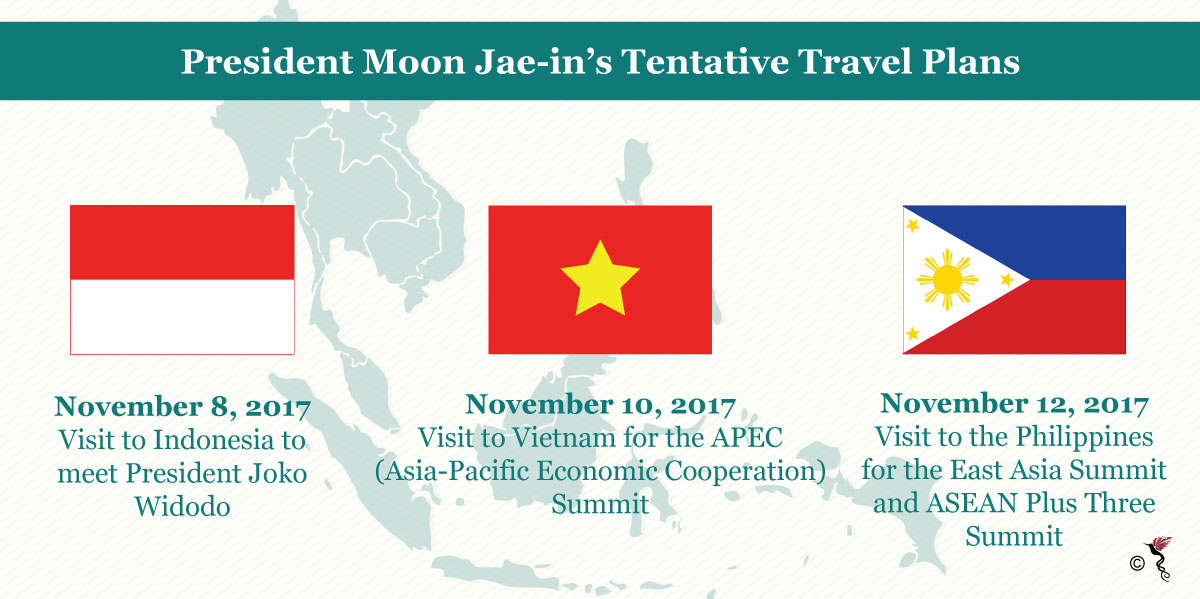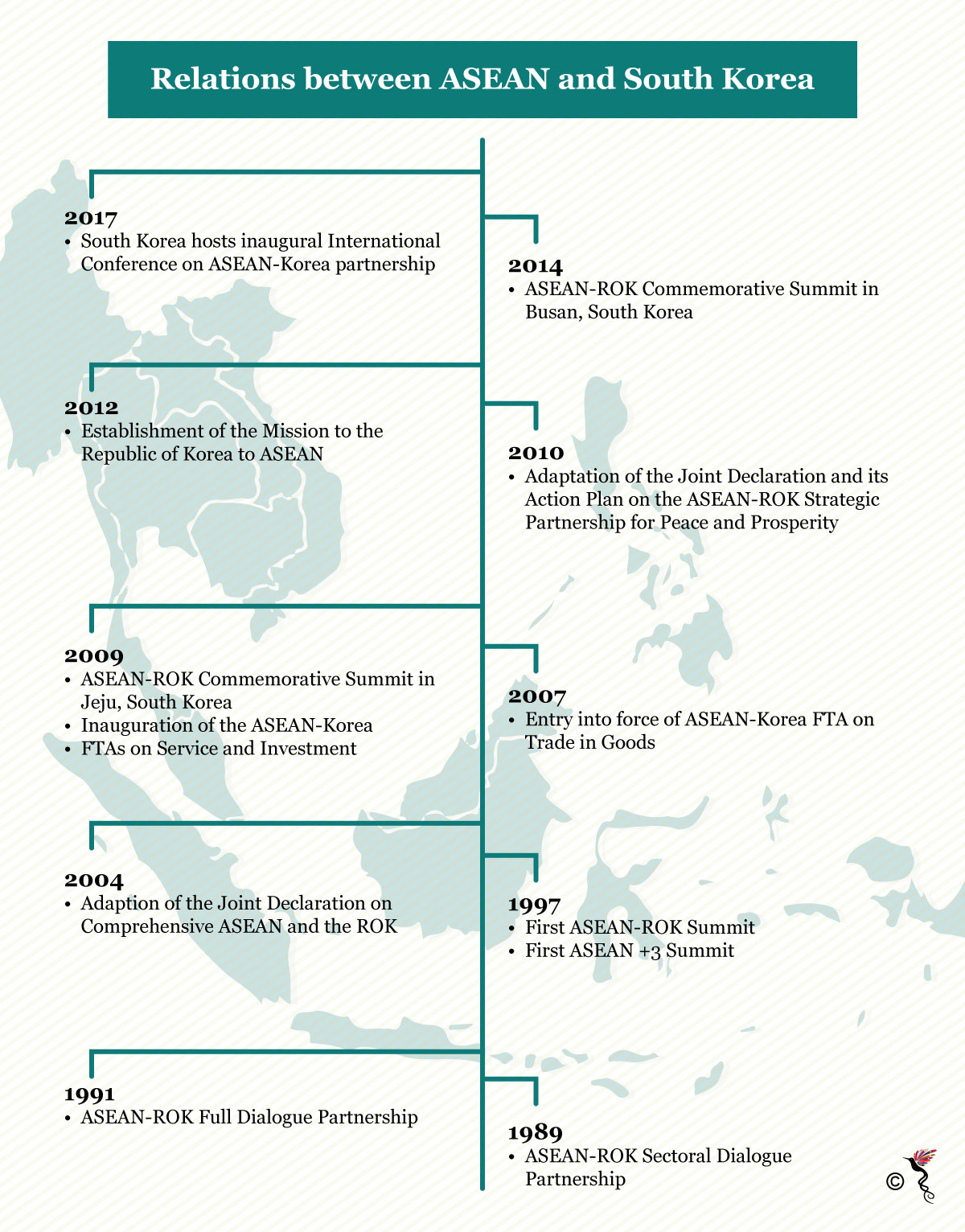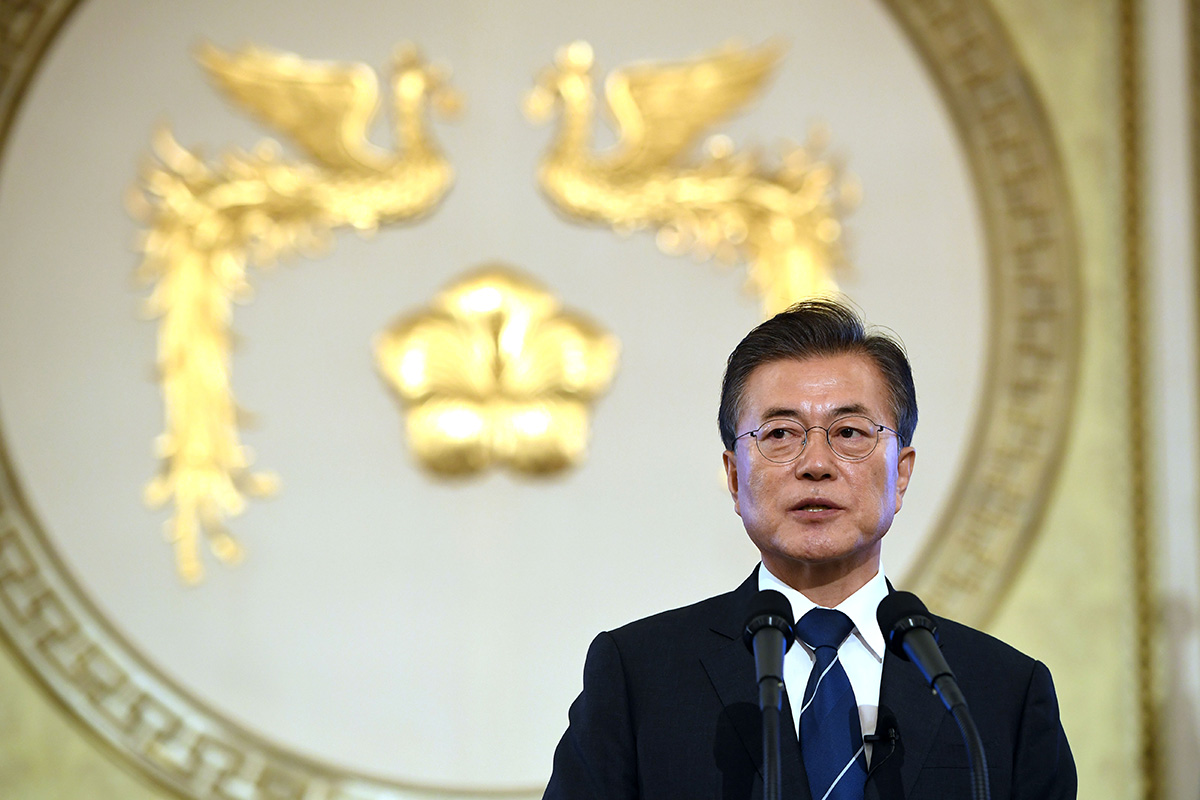South Korean President, Moon Jae-in will be visiting three ASEAN (Association of Southeast Asian Nations) countries next month – namely Indonesia, Vietnam and the Philippines for the first time since assuming office in May this year.
His visit to Indonesia on the November 8 will kickstart the three-nation tour of the region where he is scheduled to meet his Indonesian counterpart – President Joko Widodo – and is expected to hold a summit in the Indonesian capital of Jakarta.
Next on the agenda are visits to Vietnam for the Asia Pacific Economic Cooperation Summit on the November 10 and the Philippines for the East Asia Summit and ASEAN Plus Three Summit two days later.

South Korean President Moon Jae-in’s inaugural visit to Southeast Asia.
Moon’s visit to Southeast Asia comes in the heels of rising tensions in the Korean Peninsula which has been at an all-time high and souring Sino-South Korean relations.
Recent exchanges between US President Donald Trump and North Korean premier, Kim Jong-Un have been far from diplomatic and has done little to resolve the issue. Besides Trump’s notorious tweets against the North Korean leader, he has also been criticising Moon’s approach of “appeasement” with Pyongyang when Seoul resorted to diplomatic avenues to reduce tensions.
In response to North Korea’s continued missile tests, the US has deployed THAAD (Terminal High Altitude Area Defense) in Seongju – 300 kilometres from the South Korean capital – amidst domestic protests by peace campaigners. The installation of US military assets so close to Chinese borders have undoubtedly outraged Beijing who heavily condemned the move. In retaliation, China has imposed unofficial sanctions on South Korea which have affected the latter’s tourism sector and businesses in China.
Given that Seoul finds itself increasingly sandwiched between an unhelpful Washington and a belligerent Pyongyang, it is no surprise that the nation has now turned to ASEAN. According to Moon’s press secretary, Yoon Young Chan, the visit reaffirms South Korea’s commitment towards bolstering its ties with its ASEAN counterparts. Seoul also hopes to raise relations with ASEAN so that it is on par with the diplomatic ties it shares with the US, China, Russia and Japan.
ASEAN is South Korea’s second largest trading partner and bilateral trade broke the 100-billion-dollar mark last year. The regional association is South Korea’s second largest investment destination. FDI (Foreign Direct Investment) from South Korea to ASEAN reached upwards of 5.1 billion dollars last year from 4.1 billion dollars in 2014. ASEAN is also the number one destination for South Korean tourists – over one million of South Koreans visited the Philippines and Thailand in 2014.

Chronology of relations between ASEAN and South Korea.
In an event last August, South Korean Foreign Minister, Kang Kyung-wha called for ASEAN to play a more proactive role vis-à-vis the conflict in the Korean Peninsula. Aside from that, the 10-member association has an uncommonly "warm" bond with North Korea which may very well make it the most suitable mediator for the conflict.
However, the possible flaw in such an idea lies within ASEAN’s diplomatic arsenal. At first glance, the best tool it has is the ARF (ASEAN Regional Forum) which has come under fire for being largely inflexible due to ASEAN’s slow decision-making process.
According to Senior Lecturer from the Department of International and Strategic Studies at the University of Malaya in Malaysia, Er-win Tan, the ARF has a very limited role and was more effective in the past when the “political environment was rather more conducive for a grudging rapprochement between the US and North Korea.”
However, now with different geopolitical dynamics at play – given Trump’s unorthodox approach to diplomacy and North Korea’s testing of its largest nuclear weapon, ASEAN may very well need to rethink its “ASEAN Way” approach which undergirds its style of diplomacy if it were to play mediator.
The conduct of other major powers in the region will undoubtedly shape ASEAN’s interests and it is vital that the region doesn’t become a theatre of major power rivalry. Hence, whatever potential ASEAN may have in resolving or mediating the dispute must be meted out cautiously.
At the end of the day, regional interests should always come first.
